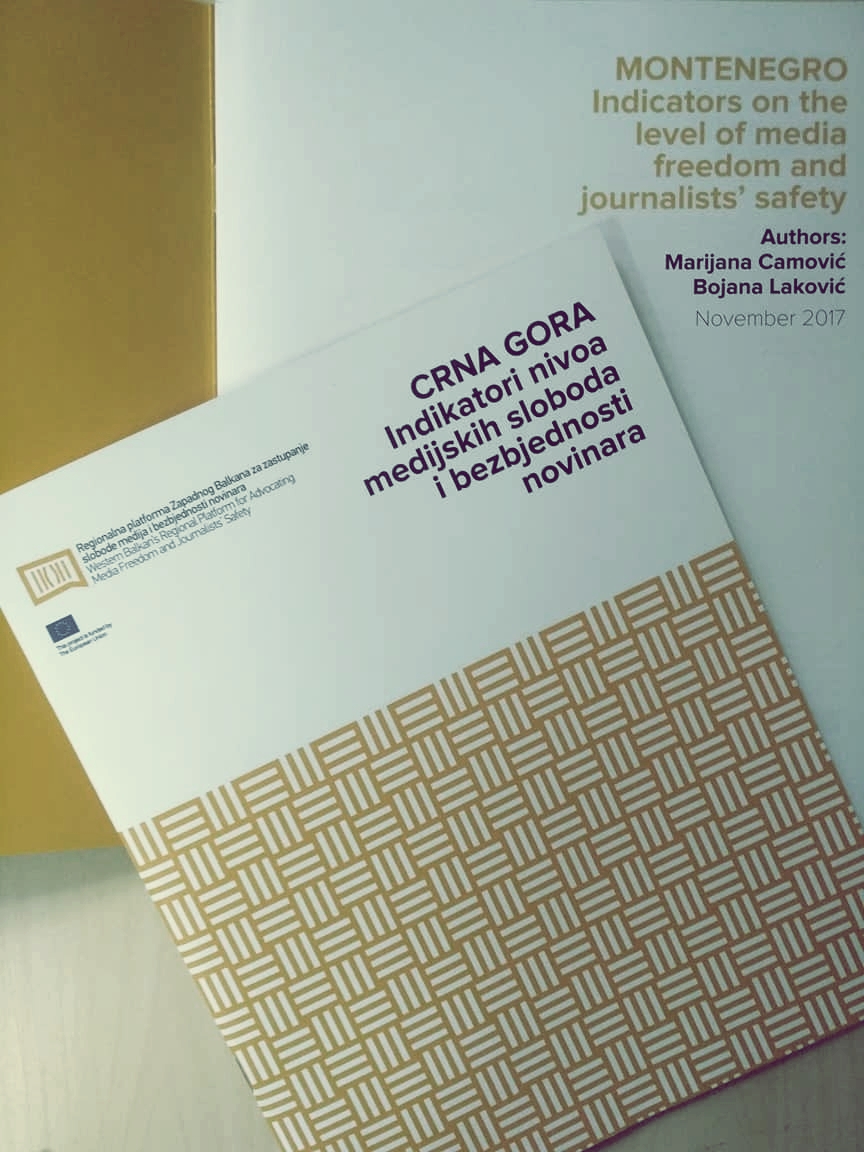
PODGORICA, 19.03.2017. – Presidential elections in Montenegro will be held on April 15, and local elections in more than 10 municipalities in late May. Having that in mind we publish a chapter: Is there sufficient legal protection of political pluralism in the media before and during election campaign? from the research of the Trade Union of Media of Montenegro Indicators on the level of media freedom and journalists’ safety, written by Marijana Camović and Bojana Laković.
Although number of media in Montenegro is high, it does not imply pluralism of media content. The general assessment of the media scene in Montenegro, as described in a large number of reports on media freedom, is that there is a lack of balanced reporting. This is also highlighted in the State Department Report for 2016. “The lack of training and the unprofessional behaviour of journalists combined with political and economic interference and low salaries for journalists have occasionally contributed to bias reporting.“
The Law on the National Public Broadcasting Service RTCG and the Law on Election of Councillors and Parliament Members regulate political pluralism in the media during the preelection campaigns. There is a common position that political parties do not have equal access to the media, whether it is an electoral or non-electoral period. In October 2016, parliamentary elections were held in Montenegro, and the European Commission Report assessed that “the weaknesses of the media sector, especially those related to editorial independence and detailed reporting, polarization and self-regulation, were evident during the recent election campaign.”
A non-governmental organization Civic Alliance monitored media coverage during the pre-election campaign for 2016 parliamentary elections, which showed that the media took side of certain political parties and coalitions and thus jeopardized objective information to the public. The Civic Alliance noted that the media, especially printed, were often one-sided in reporting, but that they also were using a “covert campaign”. Thus, every fifth text in the newspaper covertly promoted one of the parties, while in the last month of the campaign each third report contained the elements of the covert campaign. The research, according to the NGO, showed that “the media have”favourite” political subjects, but also those political subjects have their “favourites” among media.”
“What we could conclude from the results is that media showed lack of professionalism offering limited and politically coloured biased information about the electoral process,” said Kristina Ćetković from Civic Alliance.